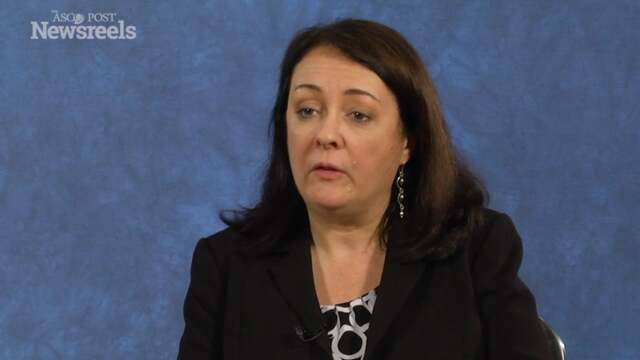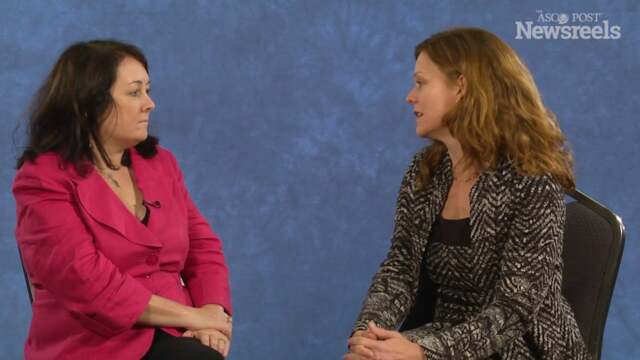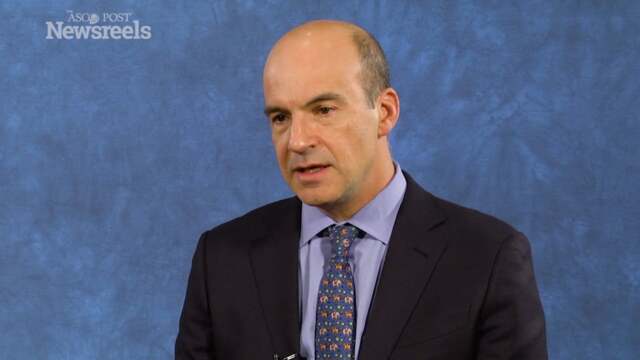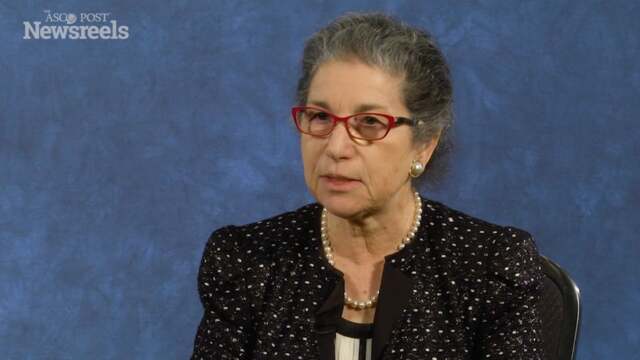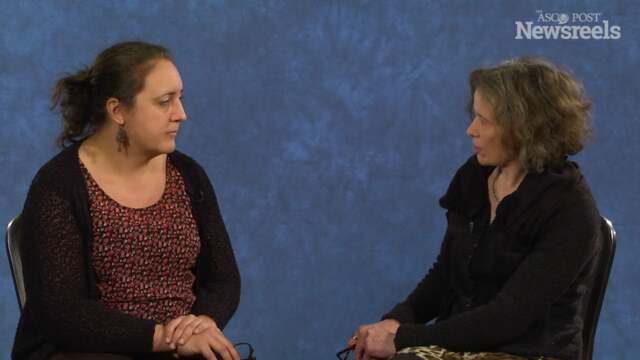Aleix Prat, MD, PhD, on HER2-Positive Breast Cancer: First Results of the PAMELA Trial
2016 San Antonio Breast Cancer Symposium
Aleix Prat, MD, PhD, of the University of Barcelona, discusses study findings on intrinsic subtype as a predictor of pathologic complete response following neoadjuvant dual HER2 blockade without chemotherapy in HER2-positive breast cancer (Abstract S3-03).
Ruth O'Regan, MD, of the University of Wisconsin, discusses study findings on buparlisib plus fulvestrant in postmenopausal women with HR-positive, HER2-positive, aromatase inhibitor–treated, locally advanced or metastatic breast cancer, who progressed on or after mTOR inhibitor–based treatment (Abstract S4-07).
Ruth O’Regan, MD, of the University of Wisconsin, and Ann H. Partridge, MD, of the Dana-Farber Cancer Institute, discuss study findings on the prognostic associations of TILs in metastatic HER2-positive breast cancer (Abstract S1-04).
Peter Bach, MD, of Memorial Sloan Kettering Cancer Center, summarizes his plenary lecture on drug costs and their effect on the affordability of cancer care worldwide (Plenary Lecture 3).
Patricia A. Ganz, MD, of the UCLA Jonsson Comprehensive Cancer Center, summarizes two studies on using duloxetine for aromatase inhibitor–associated musculoskeletal symptoms, and aromatase inhibitors’ effect on endothelial function and heart disease (Abstracts S5-06 and S5-07).
Sabine Linn, MD, PhD, and Sonja Vliek, MD, both of the Netherlands Cancer Institute, discuss study findings on adjuvant ibandronate in postmenopausal women with early breast cancer (Abstract S6-02).
